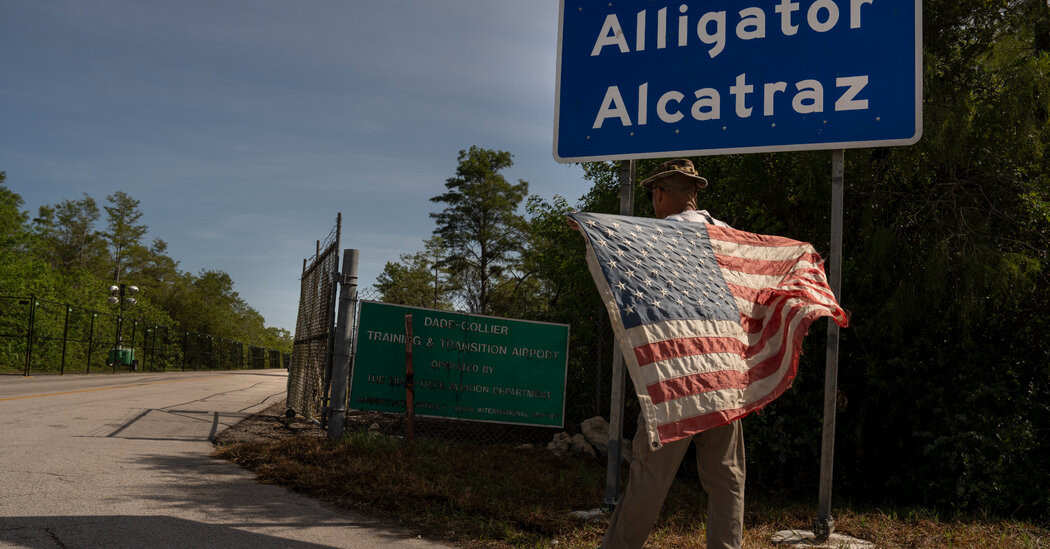

Several immigrant detainees described high tension and anxiety at the remote, hastily constructed facility over a lack of information, recreation and access to medication.
The men at the new immigrant detention center in the Florida Everglades have no pencils, books or television. The lights stay on through the night. When it rains, which is nearly every day during summer, the tents housing detainees spring leaks and bugs crawl in.
In phone interviews, several detainees described infrequent showers, meals that amounted to little more than snacks, other detainees falling ill with flulike symptoms and sleep deprivation. They described unrest over a lack of information, recreation and access to medication.
“It’s a tinderbox,” said Rick Herrera, one of the detainees, who called a reporter repeatedly over five days, offering a rare window into the chaotic early weeks of what experts say is the nation’s only state-run facility for federal immigration detainees.
Florida raced to open the center — officially naming it “Alligator Alcatraz” to play up its remote, swampy location — on July 3, eager to help President Trump’s immigration crackdown by providing more detention capacity. Kristi Noem, the Homeland Security secretary, said on Sunday that other states want to follow Florida’s lead.
Gov. Ron DeSantis of Florida, a Republican, has positioned his state as particularly aggressive on immigration enforcement, deputizing state and local law enforcement to act as a “force multiplier” for federal authorities.
But opening the detention center in the Everglades was a move with little precedent that relied on emergency state powers. Until recently, the federal government has been responsible for housing immigration detainees, and it has largely detained people who recently entered the country illegally, or who have criminal convictions or outstanding deportation orders. But immigration enforcement has changed substantially under Mr. Trump, sweeping up people who were not the focus before.



